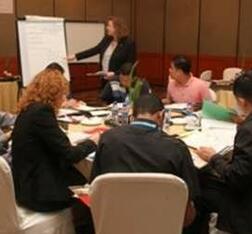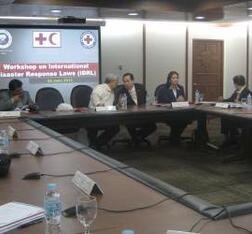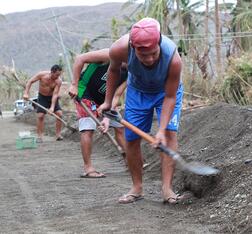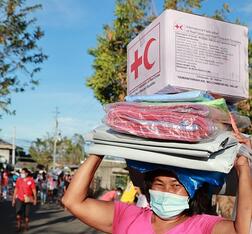
“Finally! The Senate has adopted our amendments. Kung kinaya ng ibang bansa na lampasan ang pandemic na ito, kaya rin natin. To the Filipino people – yes, we can and yes, we will. Fight we must, win we must!”, said Philippine Red Cross Chairperson and Senator Richard Gordon via Facebook, referring to his crucial amendments to the law, paving way for the P100,000 safety net for each healthcare worker infected by COVID-19, and a P1 million allocation each for bereaved families of healthcare workers who pass away in the line of duty.
To better address COVID-19, the legislation identifies Philippine Red Cross as a key partner of the government in the distribution of goods and services to prevent and respond to the effects of the pandemic. As “auxiliary” to the public authorities in the humanitarian field, the Philippine Red Cross, supported by its worldwide Red Cross Red Crescent Movement partners, is mandated by the Philippine Red Cross Act (RA 10072) and international law to provide life-saving humanitarian aid, alleviating the suffering of people wherever they may be found. The Bayanihan to Heal as One Act emphasizes and strengthens this auxiliary role of the prime humanitarian volunteer organization in the country, to support and supplement government efforts in these challenging and volatile times.
Even prior to the passage of the Bayanihan to Heal as One Act, Philippine Red Cross staff and volunteers had been mobilizing resources and providing relief assistance and pandemic prevention kits to communities, through Red Cross Chapters in Luzon, Visayas and Mindanao. 1,137 liters of disinfectant solution had been donated to the Bulacan Red Cross Chapter, which it will then distribute to hospitals, barangay tanods, and other community frontliners. The Davao de Oro Red Cross Chapter provided tents to serve as 14-day quarantine facilities for some passengers traveling from other parts of the Philippines, with Compostela Red Cross Chapter providing beds and water, ensuring respect for human dignity in humanitarian aid.
Philippine Red Cross Headquarters had also set up a 24/7-hour Red Cross hotline (1158) to address questions regarding COVID-19 symptoms and precautions, with volunteer doctors advising whether hospitalization may be required. Volunteer social workers also provide mental and psychosocial support to callers as part of Philippine Red Cross’ support to mental health. This helps decongest overwhelmed medical facilities by providing a first layer screening. There have been 128 calls received, the highest volume on March 24 after the new law was passed. There are currently 53 call center volunteers, and Philippine Red Cross welcomes more volunteers to serve the increasing volume of callers each day.



